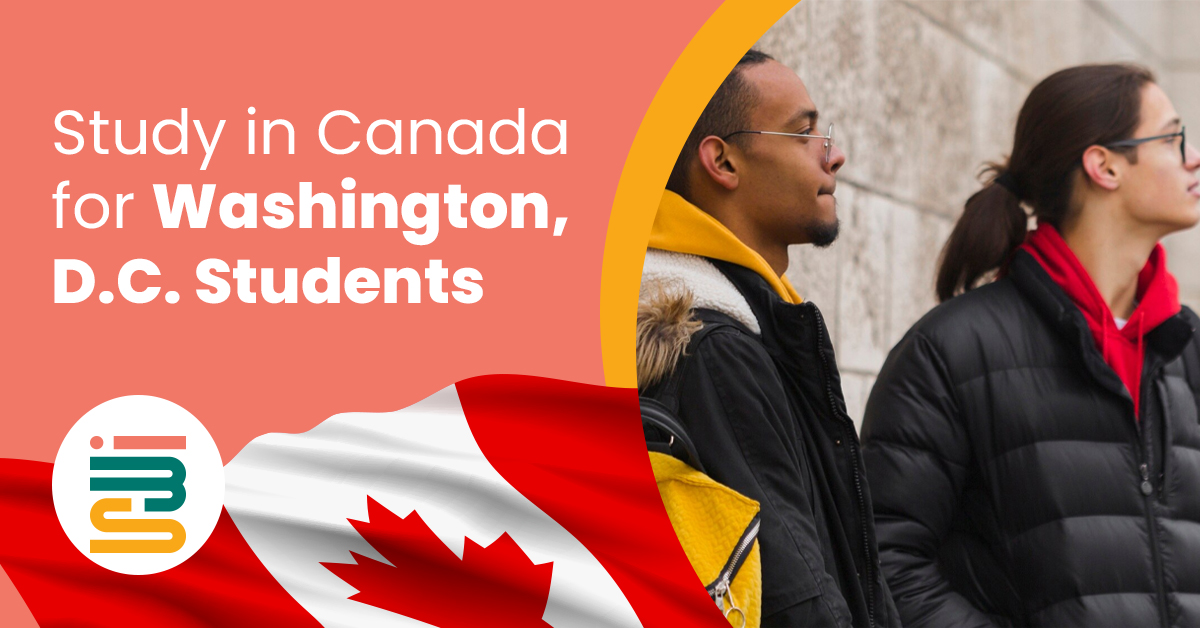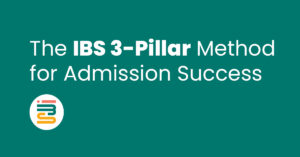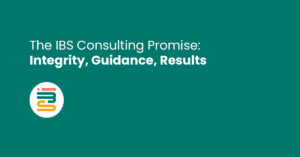Canada is quickly becoming a top choice for students from Washington, D.C. looking for excellent education options. With a mix of diverse cities, a strong educational system, and countless opportunities for growth, it’s no surprise that many students are drawn to study in Canada. In fact, Canada is home to some of the world’s best universities, making it an ideal destination for those eager to further their studies.
For Washington, D.C. students planning to study in Canada, it’s important to know the key entry requirements, including the GPA and eligibility criteria for various programs. Whether you’re looking at undergraduate or graduate programs, understanding these requirements will help you navigate the application process with ease.
This article will give you all the information you need to confidently prepare for studying in Canada. We’ll cover everything from eligibility to GPA requirements, ensuring you’re fully informed before taking the next step.
Study in Canada for Washington, D.C. Students
Quick Comparison Between Studying in the U.S. and Canada
Many students wonder whether it’s better to study in the U.S. or Canada. If you are thinking about making a choice, here’s a quick look at the main differences:
- Cost: Studying in Canada can save you money. Tuition in Canada is often much lower compared to many colleges and universities in the U.S.
- Visa: Getting a student visa for Canada is pretty simple if you are a U.S. citizen. The process is clear and not stressful.
- Language: You don’t have to worry about learning a new language. Most courses in Canada are taught in English.
- Environment: Canadian cities are very clean, safe, and welcoming. It’s a peaceful place to live and study.
- Opportunities: After graduation, you may be allowed to work and even stay longer in Canada.
This is why a lot of students now choose to study in Canada from USA instead of staying back.
Why Washington, D.C. Students Should Study in Canada
There are many good reasons why you should consider study in Canada for Washington, D.C. students. Here are some benefits you can enjoy:
- Lower Tuition Fees: School fees are much cheaper than most schools in the U.S.
- Good Healthcare System: Health insurance is affordable, and the hospitals are great.
- Friendly to International Students: Canadians are known for being warm and welcoming.
- Easy Work Options After School: You can apply for a work permit and stay back after graduation.
- English Tests Often Waived: Some schools don’t even ask U.S. students for English test scores like TOEFL or IELTS.
Choosing to study in Canada for Washington, D.C. students could be one of the best decisions for your education and future.
Curious about the advantages of pursuing your studies overseas? Reach out to IBS Consulting and book your FREE consultation to learn more!
Book Your Free Consultation
How Can Students from Washington, D.C. Study in Canada?
You might be asking, how can students from Washington, D.C. study in Canada? Good news, it’s easier than you think.
If you have a U.S. passport or a green card, you can apply to study in Canada from USA. Canadian schools happily accept U.S. students. In most cases, your high school diploma or GED is all you need.
Since Canada is very close to Washington, D.C., you don’t have to worry about long flights. It’s a short trip compared to studying in Europe or Asia.
Once a school accepts you, you just need to apply for a Canadian study permit. That’s it.
Requirements to Study in Canada for American Students
Now let’s talk about the requirements to study in Canada for American students.
Here’s what you’ll need:
- High school diploma or GED
- You should be at least 17 years old if you are going for college or university
- Valid passport
- Proof that you can pay for your education and living costs
- Acceptance letter from a Canadian school
- (Sometimes) a personal essay or letters of recommendation
Language tests like TOEFL or IELTS are often not required for U.S. students, but double-check with your school just to be sure.
Meeting the requirements to study in Canada for American students is simple, so don’t stress too much.
What GPA Do You Need to Study in Canada?
Many students ask, “What GPA do I need if I want to study in Canada for Washington, D.C. students?”
Here’s a simple guide:
- Top universities (like University of Toronto): GPA of 3.3 and above
- Mid-range universities: GPA of 2.8 to 3.2
- Community colleges: GPA of 2.5 and above
Some programs like medicine or engineering might ask for higher GPAs. Always check your school’s website to be sure.
Easy Application Steps for Washington, D.C. Students
Applying is not as hard as it sounds. Here are the simple steps:
- Choose your school.
- Submit your application online.
- Upload your documents (passport, transcripts, etc.).
- Get your acceptance letter.
- Apply for your Canadian study permit.
- Plan your travel.
When to apply
- Fall classes: Apply between January to March
- Winter classes: Apply between September to October
Start early so you don’t rush later.
Interested in learning more about the benefits of studying abroad? Call IBS Consulting to schedule a FREE consultation right away!
Book Your Free Consultation
Cost of Studying in Canada for U.S. Students
Worried about money? Let’s talk about the cost of studying in Canada for U.S. students.
Here’s what to expect:
- Tuition: Around $15,000 to $25,000 per year.
- Living Costs: Around $10,000 to $15,000 per year (housing, food, transportation).
- Health Insurance: Around $600 to $900 per year.
Some schools that are more affordable are:
- University of Manitoba
- Memorial University of Newfoundland
- University of Regina
Choosing to study in Canada for Washington, D.C. students can actually save you a lot of money while giving you a top-quality education.
Scholarships and Financial Aid for D.C. Students
If you need help with money, here are options:
Top scholarships for U.S. students:
- Lester B. Pearson International Scholarship (University of Toronto)
- International Leader of Tomorrow Award (UBC)
- Humber College Entrance Scholarships
Other ways to get aid
- Apply for U.S. government aid (FAFSA – some schools accept it)
- Check school websites for international student awards
- Ask about need-based aid or grants
Always check the deadlines and application rules for each scholarship.
Do You Need a Visa to Study in Canada from D.C.?
Yes. Even U.S. citizens need a Canada study permit.
Steps to apply for your study permit:
- Get your acceptance letter from a Canadian school
- Gather needed documents:
- Valid passport
- Proof of money to pay for school and living
- School acceptance letter
- Passport-size photos
- Apply online at the Government of Canada website
- Pay the visa fee (about $150)
- Wait for your permit (usually takes 4–8 weeks)
Top Canadian Universities Popular with U.S. Students
Many Washington, D.C. students are considering studying in Canada due to the quality education and affordable living costs. Here’s a breakdown of 10 top Canadian universities that are popular with U.S. students, especially for those interested in study in Canada for Washington, D.C. students.
| University Name | Location | Average Tuition (USD) | Application Deadline | Living Costs (per month) | Notable Programs | Additional Notes |
| University of Toronto | Toronto, Ontario | $7,000 – $22,000 | January – March | $1,200 – $1,500 | Engineering, Business, Law | Largest university in Canada |
| McGill University | Montreal, Quebec | $7,000 – $18,000 | January – March | $1,100 – $1,400 | Medicine, Arts, Law | Renowned globally |
| University of British Columbia | Vancouver, BC | $6,500 – $20,000 | January – March | $1,200 – $1,500 | Sciences, Arts, Business | One of the best for research |
| University of Ottawa | Ottawa, Ontario | $6,000 – $17,000 | February – May | $1,000 – $1,300 | Social Sciences, Education | Bilingual university (English/French) |
| Carleton University | Ottawa, Ontario | $5,000 – $18,000 | January – March | $1,000 – $1,300 | International Affairs, Journalism | Close to U.S. border |
| Memorial University | St. John’s, Newfoundland | $4,000 – $12,000 | January – May | $800 – $1,000 | Marine Biology, Arts | Lower tuition options |
| Brandon University | Brandon, Manitoba | $4,000 – $10,000 | March – April | $600 – $900 | Music, Arts | Affordable tuition |
| University of Prince Edward Island | Charlottetown, PEI | $5,000 – $14,000 | February – March | $800 – $1,000 | Business, Environmental Studies | Smaller campus, personal focus |
| University of Calgary | Calgary, Alberta | $6,500 – $18,000 | January – March | $1,200 – $1,500 | Engineering, Business, Law | Strong engineering programs |
| University of Saskatchewan | Saskatoon, Saskatchewan | $5,500 – $16,000 | January – March | $900 – $1,200 | Agriculture, Engineering | Great for rural studies |
These schools provide study in Canada for Washington, D.C. students, offering a range of programs from engineering and arts to law and business. Depending on the school, you can expect tuition fees ranging from $4,000 to $22,000 per year. Living expenses vary, with more affordable options like Memorial University and Brandon University in Newfoundland.
Each university has its own application deadlines, generally falling between January and May. It’s important to keep these dates in mind when preparing your application.
Can You Work in Canada While Studying?
For students wondering, “How can students from Washington, D.C. study in Canada?” the good news is that you can also work while studying. The Canadian government allows international students to work on or off-campus without needing a separate work permit.
- Work Limitations: During school terms, you can work up to 20 hours per week. However, during scheduled breaks, you can work full-time (40 hours a week).
- Types of Work: You can work on-campus, off-campus, or participate in internships and co-op programs if they are part of your course.
Having the ability to work while studying helps reduce living costs and gain experience in Canada, which can also improve your job prospects after graduation.
What Happens After Graduation?
After completing your studies, you have the option to stay and work in Canada. Many U.S. students who study in Canada from USA eventually settle in the country. Here’s how it works:
- Post-Graduation Work Permit (PGWP): This permit allows you to work in Canada full-time for up to 3 years, depending on the length of your program.
- Permanent Residency (PR): If you find a job and meet specific requirements, you can apply for Permanent Residency. Many U.S. students use their post-graduation work experience to help them qualify for PR.
This is an exciting opportunity for students who want to build a future in Canada after their studies.
Checklist: What D.C. Students Need Before Applying
Before you begin your application process, make sure you have all the required documents ready:
- A valid passport (your travel document)
- High school transcripts and GPA records
- Language test score (if required, such as IELTS or TOEFL)
- Proof of funds to demonstrate you can support yourself while studying
- Acceptance letter from a Canadian institutions.
These documents are essential for applying to study in Canada for Washington, D.C. students. Be sure to check with the specific school for any additional requirements.
Conclusion: Is Studying in Canada Worth It for D.C. Students?
Studying in Canada is a practical and exciting choice for Washington, D.C. students. With top-tier universities, affordable living costs, and the possibility of staying to work after graduation, Canada offers many opportunities.
Study in Canada for Washington, D.C. students means access to an internationally recognized education, a safe environment, and the chance to live and work in one of the world’s most welcoming countries.
At IBS Consulting, we help guide you through every step of your journey, from choosing the right school to submitting your application. Let us make the process easier and help you make informed decisions.
If you’re ready to start, contact us today and see how IBS Consulting can assist you in making your dream of studying in Canada a reality. We’re here to guide you through the application process, answer any questions you have, and make the transition as smooth as possible. Reach out today and take the first step toward your Canadian education.
>Contact us





